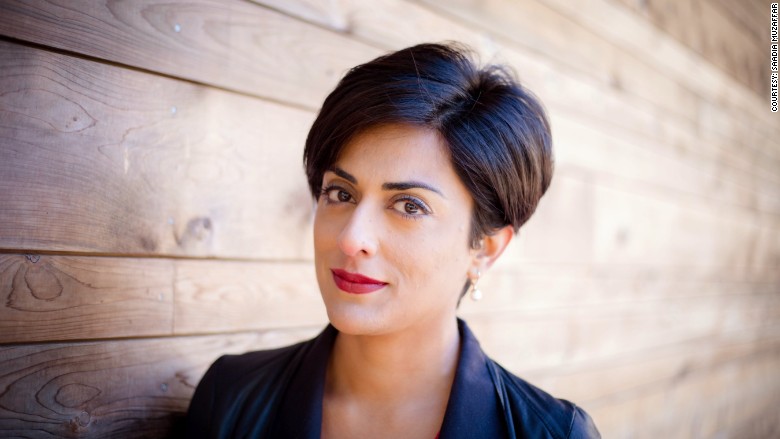
Imagine making 40% less than your male colleagues. They're doing the same job as you, with the same or lesser qualifications.
For Saadia Muzaffar, that was a reality. It was also a catalyst for her to pursue change.
Muzaffar, a force in Canada's tech scene who kicked off our 15 Questions series, said it was "crystallizing" when she found out that her male colleagues were making so much more than she was.
"It literally changed my life," said Muzaffar, who was born and raised in Pakistan.
It drove her belief that pay transparency is essential to solving the pay gap.
Women earn about 78 cents to a man's dollar, according to the Bureau of Labor Statistics. There's a lot of nuance tucked inside that fact, but even when you drill down into individual professions, the gap persists. And it's even more pronounced for black women (64 cents) and Latinas (56 cents).
Muzaffar only discovered the salary discrepancy when she confided in a male colleague about how much she was making, which she tweeted on Tuesday, Equal Pay Day.
Muzaffar said her colleague shared how much he and other male colleagues were making.
Knowing if you are fairly compensated "is only relevant when you have a baseline," she said.
That baseline can be hard to come by. Especially for women who tend to shy away from talking about pay. ("I think men are much more forward in talking about their salaries, Muzaffar said. "Most of my dude friends, when they get a new job, they talk about the salary.")
Many employees trust that companies are compensating them fairly. But if one candidate negotiates a salary, and another with the same qualifications does not, that could make the difference of tens of thousands of dollars.
"We lose out on the empowerment that comes from being transparent of where we stand in the pecking order," she added.
Muzaffar said she did confront her employer (who she declined to name) about her pay. When it didn't yield the results she knew she deserved, she quit.
"I was told things like, 'If you just stay the course and do a few more things...' It was such a vague promise," she said.
Inspired to help others learn from her experience, Muzaffar started a Women's Power Circle two years ago. It's a group of 12 women in tech and financial services who meet once a month in Toronto to chat about professional challenges. Other satellite groups have popped up in Canada.
Recently, Muzaffar challenged her group to reveal their pay to one another.
"The women who were afraid saw that it actually isn't as daunting as they thought," she said. "This is the first domino in that chain of transparency."



